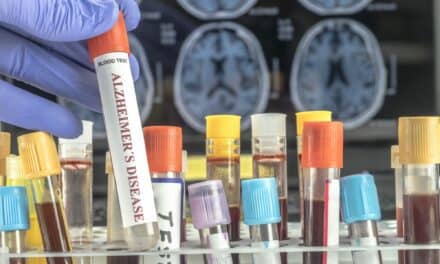As AI continues to help support new diagnostic solutions, the outlook for an effective Alzheimer’s disease diagnosis looks brighter than ever.
By Andy Lundin
While there is currently no panacea for Alzheimer’s disease prevention, AI is fortunately helping pave the way for technologies that will help diagnose the disease earlier and give clinicians additional treatment avenues to slow the disease’s progression.
Currently, Alzheimer’s disease affects more than 6 million people in the U.S., and as the population ages is predicted to become more common with 13 million cases by 2050.(1) Early diagnosis of Alzheimer’s can help clinicians treat patients with the disease sooner and hopefully lessen the scope of the disease, which AI is here to help us do.
AI Technologies Influencing Alzheimer’s Diagnostics
Because of the innovations in artificial intelligence, improved possibilities for earlier Alzheimer’s disease diagnosis are becoming a reality for clinicians.
AI and machine learning technologies have integrated into a wide spectrum of various clinical technologies for early Alzheimer’s disease diagnosis. This includes non-invasive techniques such as imaging, wearable sensors, and bio-sensors (2), and breakthroughs in cerebrospinal fluid (CSF) analysis (3), for example.
Molecular You is one of the companies leading the way to an effective Alzheimer’s test. The company’s blood test uses an AI-driven algorithm to integrate diverse biomarker and clinical data from an individual—including metabolites, proteins, and patient medical data—to help bolster early Alzheimer’s disease detection.
This test rapidly interprets the complex and diverse patterns to identify insights to track subtle and novel changes indicative of Alzheimer’s pathology before clinical symptoms appear.
“This personalized approach, leveraging AI, enhances accuracy in early Alzheimer’s detection, enabling proactive interventions at the earliest stages where the disease progression can be slowed down or even stopped,” says Ash Anwar, PhD, MBA, senior director, data science, co-founder, Molecular You. “This strategy aims to surpass traditional diagnostic methods by identifying early indicators in multi-omics and patient clinical data.”
Anwar says Molecular You has been able to identify key biological disease hallmarks in patients with mild cognitive impairment (MCI) and early onset Alzheimer’s disease, as well as biomarkers that can be targeted to slow down disease progression.
“Our assessment can guide clinicians in developing proactive interventions including personalized treatment plans, cognitive exercises, or interventions to address specific biomarker imbalances associated with Alzheimer’s disease,” says Anwar.
Further reading: Study Sheds Light on Sporadic Early-Onset Alzheimer’s Disease
Potential Clinical Diagnostics Challenges for AI Adoption
However, despite all that artificial intelligence is doing now to support clinical diagnostics (and what it will also be doing in the future), skepticism of the technology, as a whole, which may further impede wider AI adoption, at least in the near term.
“Health care professionals may lack familiarity with AI technologies, which may hinder the willingness to adopt these new technologies,” Anwar says. “The team will likely need to develop training programs and educational materials and provide continuous support and learning opportunities to ensure effective utilization of these tools.”
And that’s not all. Some broader challenges Anwar observed in the clinical diagnostics space include:
- Ensuring that the data used is standardized and high-quality which is crucial for training accurate AI models. Variability in data formats, sources, and quality can impact the performance of these algorithms
- Validating the accuracy and predictivity of AI algorithms, whether through clinical trials or by monitoring client data long term, will be essential for regulatory approval and clinical acceptance. Meeting regulatory requirements is crucial for ensuring patient and physician trust
- Ensuring patient privacy and addressing ethical concerns related to AI in healthcare, including issues of consent, data ownership, and potential biases in algorithms
Anwar noted that collaboration in the broader clinical diagnostics space would be necessary for success.
Further reading: New Alzheimer’s Research Reveals a Neurodegeneration Blood Biomarker
Unifying Clinical Diagnostic Technologies
Indeed, collaboration is elemental to the successful implementation of AI technology in this space. Other important forms of collaboration include combining patient health results from other diagnostic avenues for Alzheimer’s disease, including medical imaging and CSF testing.
Doing so will provide patients with a more powerful solution as they seek out improved knowledge about their health.
“While Molecular You’s solution is effective as a standalone early detection tool for diseases, including Alzheimer’s disease, however, it is definitely more powerful if it can be combined with additional tests, imaging, etc,” says Anwar. “While the blood is a very good tissue to evaluate health and disease status, by combining this information with additional testing of CSF and imaging can allow clinicians to validate and grade Alzheimer’s disease progression. Also, by incorporating these additional detection techniques, it will also give more credibility to our assessment and will also allow us to further increase the accuracy and reliability.”
References:





